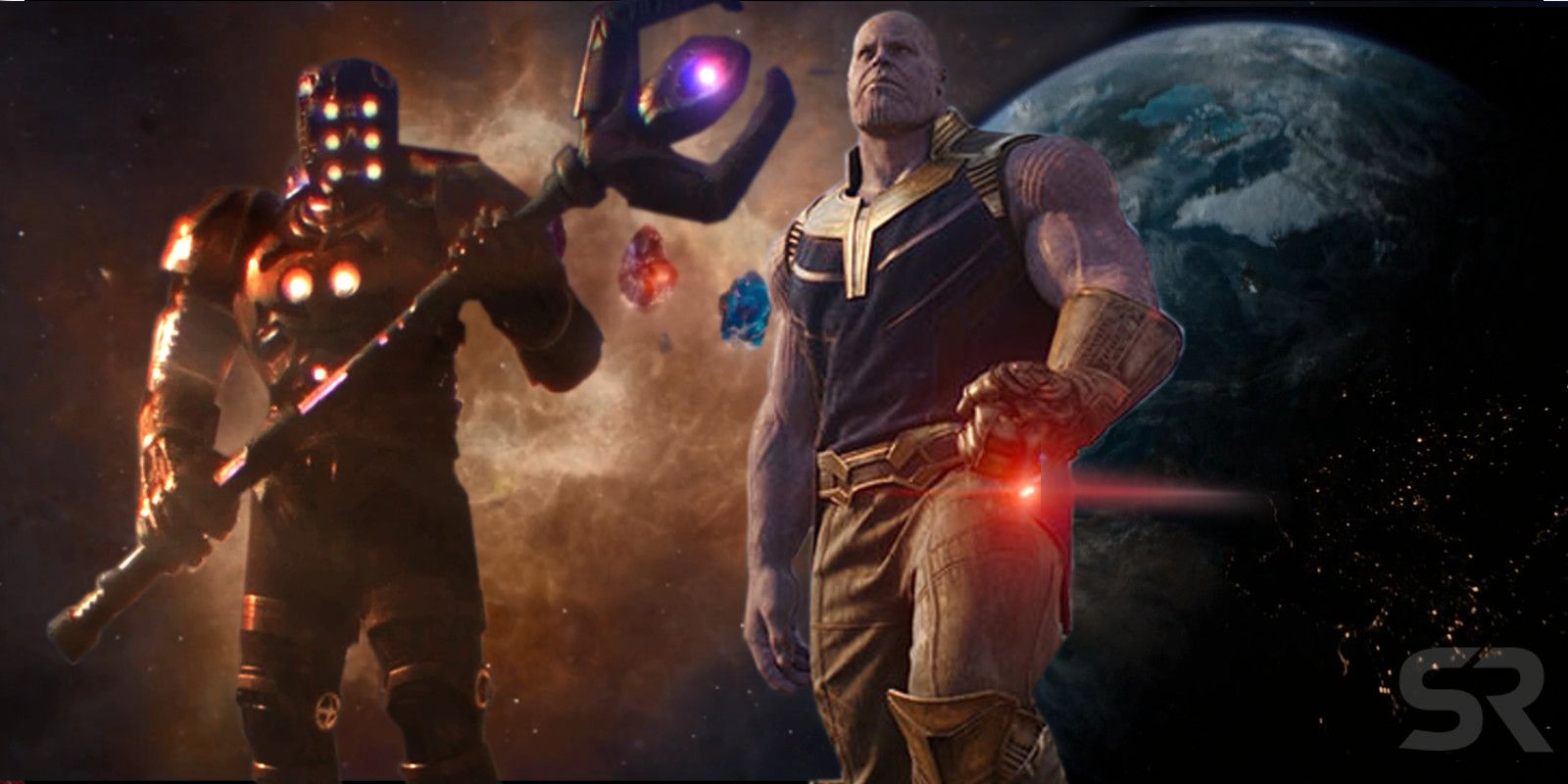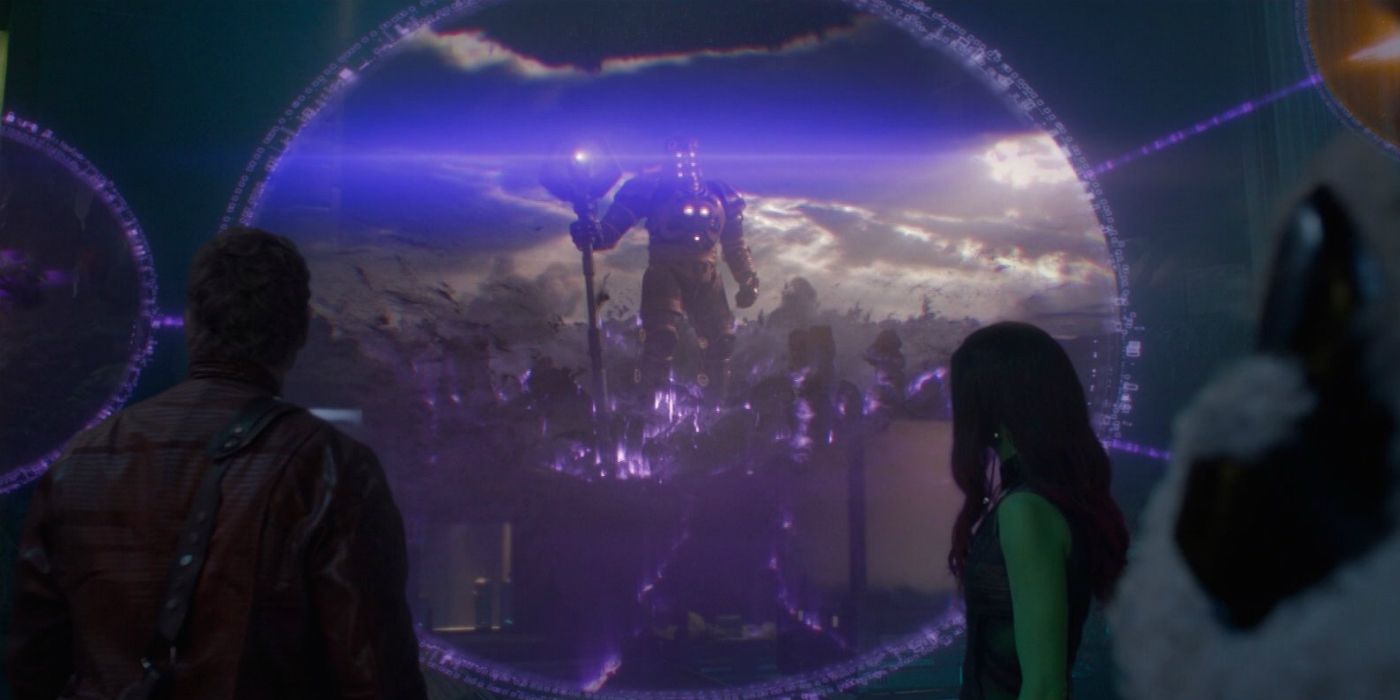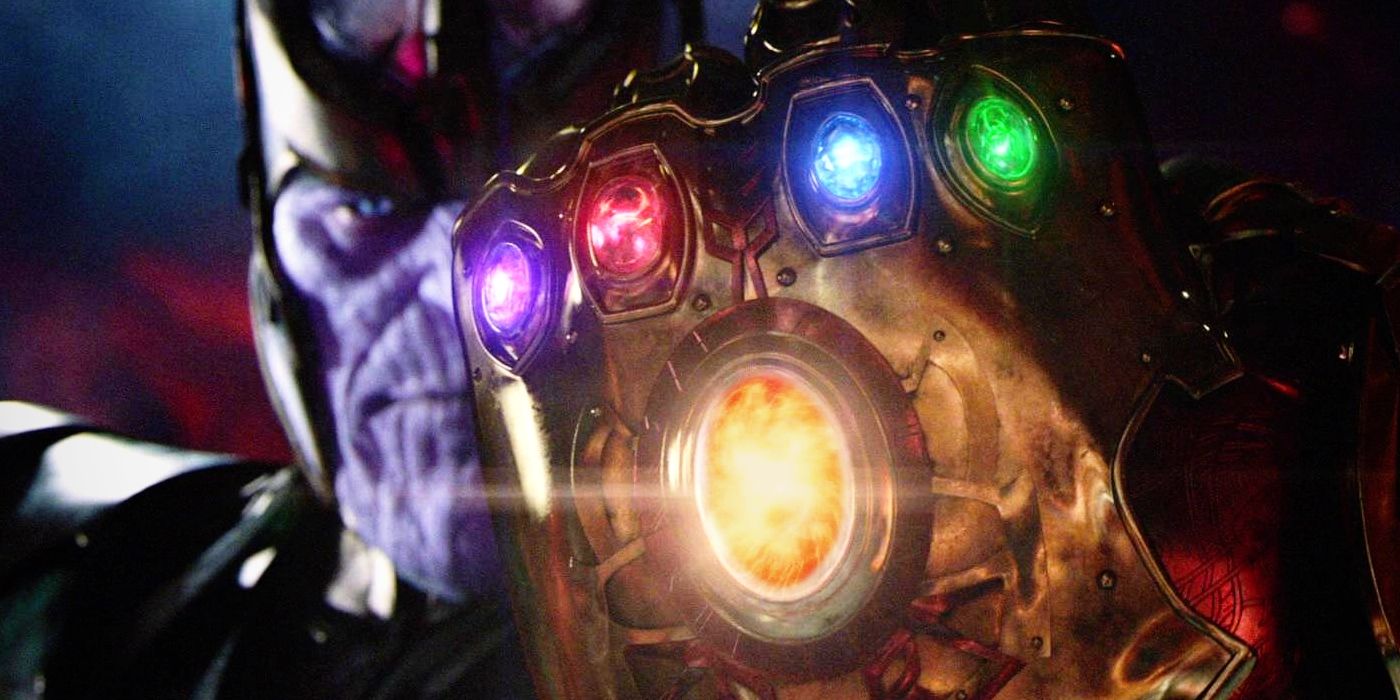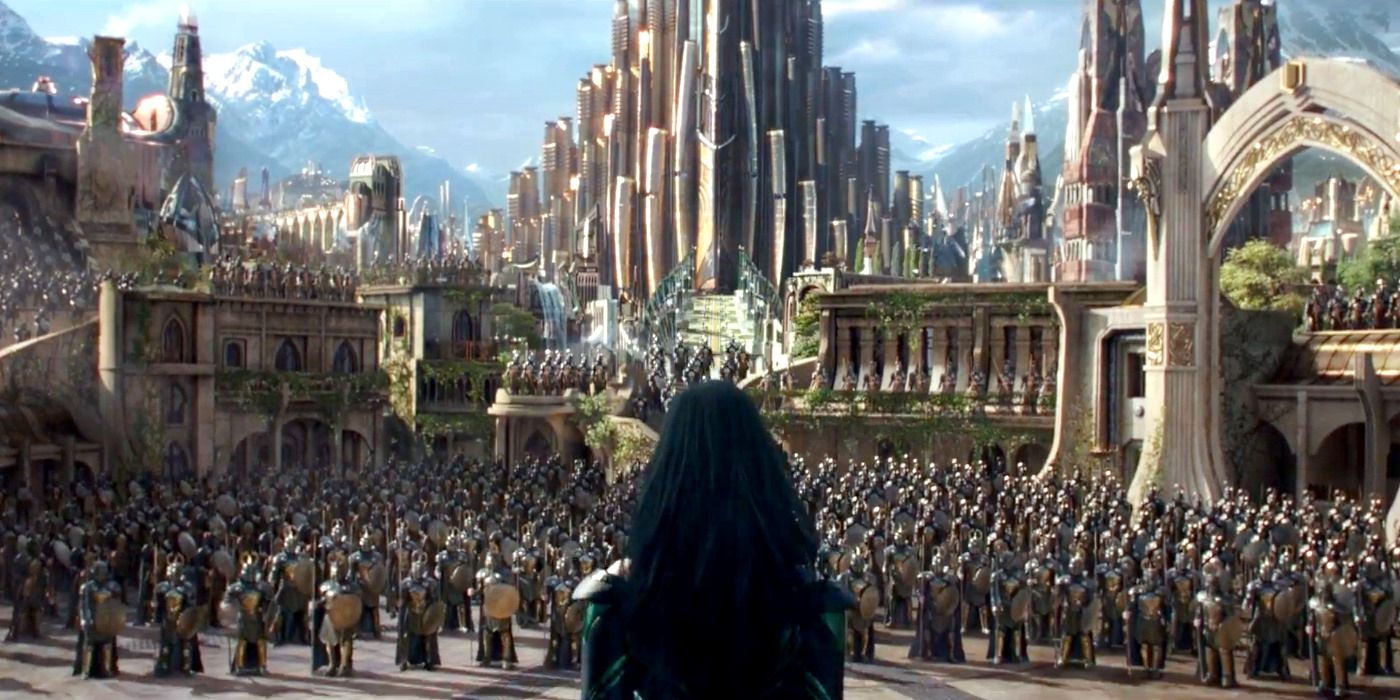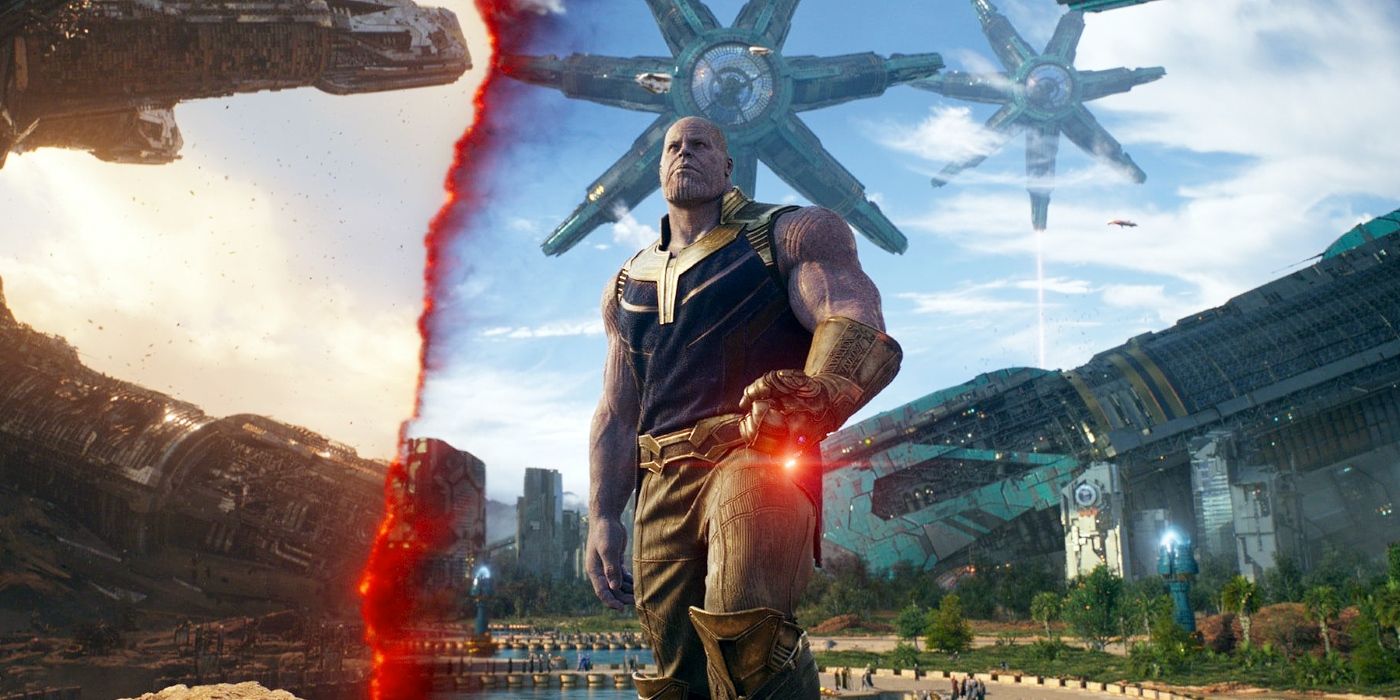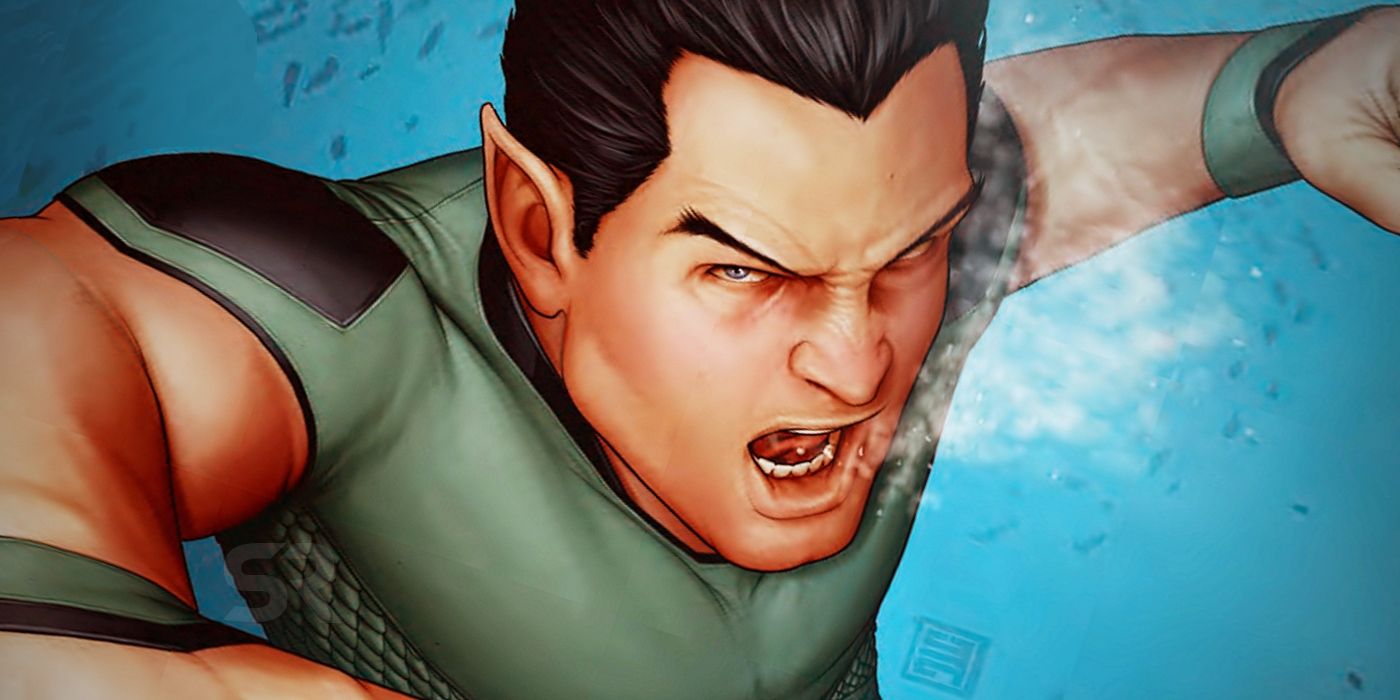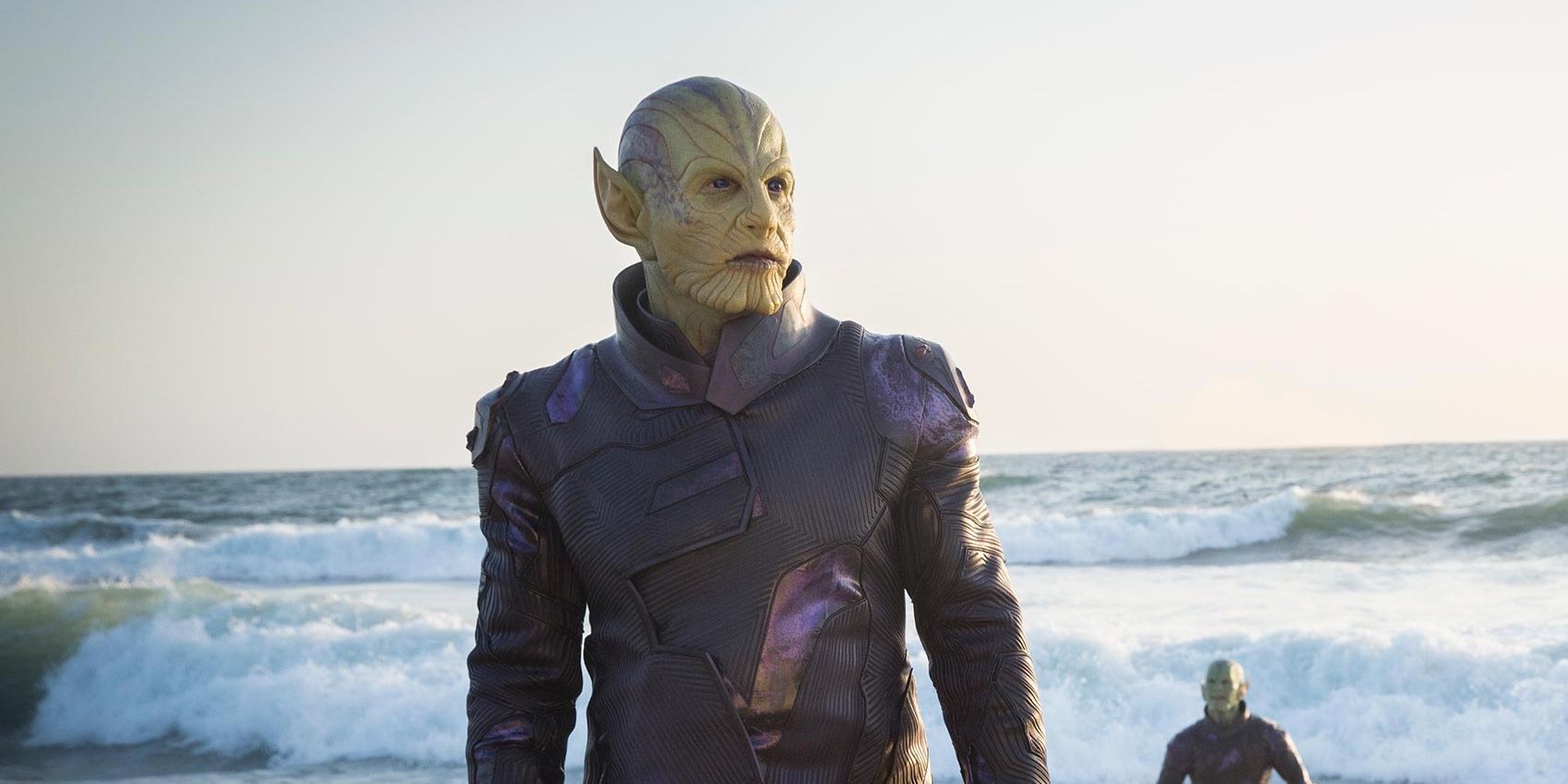Marvel's most surprising film, The Eternals, could well be a prequel for the entire Marvel Cinematic Universe. Phase 4 of the MCU appears to be taking shape, and latest reports are that the 2020 releases will be Black Widow and The Eternals. Both films are believed be set in the past, revealing the never-before-seen history of the MCU. But of the two, The Eternals is by far the boldest.
A first rumored synopsis for The Eternals suggests that the movie will be set "millions of years ago," when a cosmic race known as the Celestials first began to experiment upon human beings. They will create two powerful evolutionary offshoots of humanity, the Eternals and the Deviants, races who will become locked in war. It's a fascinating concept, lifted straight from Jack Kirby's original 1976 design rather than (as had previously been expected) Neil Gaiman's 2006 relaunch of the franchise.
Related: A Complete History Of The Marvel Cinematic Universe
Why is Marvel choosing to take this surprising and unexpected approach? The answer may well lie in the fact that, in the comics, the Celestials and the Eternals are key to the history of the world. If the same is true in the MCU, then The Eternals could essentially be a prequel film for the entire shared cinematic universe. Here are the ideas that it could explore.
- This Page: The Celestials and the Infinity Stones
- Page 2: The Origins of Superheroes and Gods
- Page 3: Thanos, Namor the Submariner, and the Skrulls
The Celestials
The Celestials are already an established part of MCU lore, introduced in James Gunn's Guardians of the Galaxy films. This powerful race was born long before any other civilizations formed in the universe, and they traveled the cosmos, experimenting with some races and judging others. One flashback scene showed a Celestial wielding the Power Stone, using it to destroy all life on an inhabited world.
But something happened to the Celestials. They mysteriously disappeared from the cosmos, believed to be rendered extinct. Only traces of them remain, like the mining colony of Knowhere, which is built in the severed head of a Celestial. According to the Marvel Studios Visual Dictionary, there's also evidence of them on the planet Sakaar, which is littered with dismembered parts of their bodies. What could drive a race like the Celestials to extinction? A common theory is that the Celestials lost control of the Infinity Stones and they were turned on their former owners, wiping them from the face of the universe.
Only one Celestial survived. As revealed in Guardians of the Galaxy Vol. 2, Ego was the last of the Celestials, and he gave a sense of just how powerful they truly were. Ego could manipulate his "living light" to manipulate matter on an atomic level, forming everything from host bodies for his consciousness to entire worlds. A lone Celestial possessed the power to be a threat to the entire galaxy; fortunately, the Guardians were able to destroy his living light and thus cut Ego off from the source of his power.
Related: Guardians of the Galaxy 2: Ego the Living Planet Explained
If the Eternals synopsis is correct, the movie will be set millions of years ago, when the Celestials were at the height of their power. In the comics, the Eternals honor and revere the Celestials; but it's entirely possible that the MCU will switch things up, and that the film will see the Celestials overthrown by their own creations.
The Ancient History of the Infinity Stones
The MCU's Infinity Stones are very different to the Infinity Gems of comic book lore. In Thor: The Dark World, Odin stressed that they are "relics" of the universe before our own. The Collector went further in Guardians of the Galaxy, though, summarizing their history in a fascinating speech. "Before creation itself, there were six singularities," the Collector explained to the Guardians - and, through them, to viewers. "Then the universe exploded into existence, and the remnants of these systems were forged into concentrated ingots... Infinity Stones." One line in that piece of dialogue has always caught the attention of fans; "forged." It suggests that the Infinity Stones were created, that sometime in the past aliens locked these mysterious "singularities" in "concentrated ingots" of power. Given the Celestials are the first known race to be associated with the Infinity Stones, and their power levels are so off the charts, most viewers have assumed that the Celestials themselves were the ones who created the Infinity Stones.
Earth has always seemed strangely important to the story of the Infinity Stones. So many of them seem to have found their way to this one small blue sphere; the Time Stone, the Reality Stone, and the Space Stone have all been strongly associated with Earth. The Avengers: Infinity War Prelude revealed that the Masters of the Mystic Arts even knew that the Power Stone had been secreted on Morag. Why is Earth so significant? The answer may lie in The Eternals. If this film really is the swan song of the Celestial race, then it will presumably fall to the Eternals of Earth to hide the Infinity Stones. The secret history of these cosmic artifacts may finally be revealed.
Page 2 of 3: The Origins of Superheroes and Gods
The Origin of Superhumans
But, in Marvel comics lore, the Celestials did a lot more than just create evolutionary offshoots of humanity. As Jason Aaron's recent Avengers run has revealed, four billion years ago a dying Celestial's blood leached into the Earth, forever changing the evolutionary trajectory of our world. This, in the comics, is the reason humanity has the potential for so many superhumans. As Loki ranted in this year's Avengers #5, "Why has this particular, otherwise unremarkable world always been such a hotbed for super-powered madness? Why is the Earth so uniquely eccentric within the near-infinite number of planets strewn across the heavens?" The answer, Loki suggested, was because this was the world where a Celestial died.
Related: Marvel Comics Revealing The Avengers' Secret History
When the human race ultimately developed, it was with the potential to continue evolving, to be changed and mutated, with a secret potential for power locked deep within our very DNA. The Celestial influence is the reason Steve Rogers could become a super-soldier, T'Challa could ingest a Heart-Shaped Herb and be granted phenomenal power, or Bruce Banner could use Gamma radiation to unleash the Hulk. The comics have established that it's even the reason a single gene was introduced into humanity, one that would lie dormant for millennia, until it finally gave rise to the mutant race and became known as the X-gene. So The Eternals could subtly prepare the way for the introduction of the X-Men into the MCU as well.
There's already some evidence of a secret, long-forgotten link between the Celestials and the human race in the MCU as well. In Guardians of the Galaxy Vol. 2, Ego traveled the cosmos mating with the females of different races, attempted to create a progeny who could wield his "living light" and thus enhance his own power. In the end, only a Celestial-human hybrid had the ability to do that. Is it possible that, in the MCU as in the comics, there's a Celestial influence on the human race that leaves us with the potential for greatness? That would explain why a human woman was the only one who could bear a child destined to briefly possess the power of a Celestial.
The Origin of the Gods?
Meanwhile, there's long been a mysterious link in the comics between the Eternals and Marvel's many Pantheons. Back in 1978, Roy Thomas penned a Thor annual in which he hinted that the Pantheons themselves may be some sort of Eternal colonies. He was careful not to draw the threads too closely together, choosing to make the connection implicit rather than overt, but the implication was there nonetheless. Later comics have tied the Eternals to the Greek Pantheon and its most famous Marvel hero, Hercules, although again the nature of this link has deliberately been left as mysterious as possible.
Given the sheer power of the Eternals, it's possible that in the MCU Asgard itself is an Eternal colony. It's worth remembering that, although the MCU is nowadays more willing to experiment with magic and sorcery, the universe is a science-fiction-based one. When Asgard was introduced in Thor, the Odinson described it as a place where magic and science were one and the same. Marvel consulted with quantum physicists when deciding how magic should work in their shared universe for Doctor Strange. So the MCU is quite likely to go for a science-based origin for Asgard - and this is a fascinating possibility.
A recent interview with Kevin Feige supports this idea. "There's this notion of all of these myths and legends that we know from ancient times," he observed. "Were they inspired by the Eternals?.. It's a very ... you know, it's an ancient aliens kind of sci-fi trope that we think would be fun to explore someday." That "someday" could be a lot sooner than anyone expected.
Related: New MCU Characters Eternals Will Add in Phase 4
Page 3 of 3: Thanos, Namor the Submariner, and the Skrulls
The Eternal Colony of Titan
The Celestials may be an important part of comic book lore, but the Eternals too are significant. In the comics, the Eternals gradually spread out from Earth, and colonized other worlds. One of the most notable explorers was A'lars, sometimes known as Mentor, who founded an Eternal colony upon the planet Titan. He was the father of Thanos, and for years he refused to acknowledge his son's evil, until Thanos committed matricide and killed A'lars's beloved wife Sui-San.
The MCU version of Titan is very different to the comics, ultimately rendered uninhabitable and inhospitable due to an unspecified disaster. And yet, Avengers: Infinity War still carefully tied Thanos to A'lars; the Red Skull addressed him as "Thanos, son of A'lars." It's possible that The Eternals will serve as something of an origin story for Thanos himself.
Related: Infinity War’s Thanos Isn't Really Marvel’s Thanos
There's actually an incidental piece of evidence supporting this idea. Back in April, it was announced that Barry Lyga was writing the first MCU novel, Thanos: Titan Consumed. Lyga had worked closely with Marvel Studios while writing the novel, and the publisher announced that this would be Thanos's canon backstory. No sooner was the announcement made, though, than Marvel Studios swiftly clarified that it wasn't to be considered canon after all. All this confusion suggested that the book was originally intended to be canon, but that something had changed in Marvel's plans. At exactly the same time, rumors began to circulate that Marvel was considering an Eternals movie. Less than a month later, Marvel hired Matthew and Ryan Firpo to write the script. Although this could all be coincidence, it does strongly suggest that Marvel's change in plans was their decision to push an Eternals film.
The Story of Atlantis and Namor
If the leaked synopsis is accurate, then The Eternals will be a love story set against the backdrop of the war between the Eternals and the Deviants. Crucially, in the comics this conflict is tied to the legend of Atlantis. The conflict between the Eternals and the Deviants reached its peak 10,000 years ago on the doomed continent of Lemuria, which was ruled over by the advanced race known as the Atlanteans. King Kamuu turned the capitol city's magma pits into a devastating weapon against invaders, but unwittingly triggered an unprecedented seismic event. Matters were worsened when the Deviants launched a ruthless attack upon their Celestial creators, who responded with a nuclear cataclysm. These two disasters coincided, and caused the entire continent of Lemuria to sink beneath the waves over the course of a week. Only a few Atlantean cities survived, protected from the crushing waters by great domes they had already constructed to keep their peoples safe from invaders. According to comic book lore, the god of the oceans blessed them by evolving them so they could survive underwater; given the Eternals are often mistaken for gods, that could be a reference to the Eternals attempting to save as many lives as they could by mutating the Atlantean survivors.
Marvel fans have long hoped that Atlantis, and its ruler Namor the Sub-Mariner, would ultimately appear in the MCU; indeed, a S.H.I.E.L.D. activity map in Iron Man 2 featured markings for both Atlantis (on the Mid-Atlantic Ridge) and Wakanda. The Wakanda Easter egg led to Black Panther, but Marvel has yet to build on the Atlantis reference due to complications with Namor's film rights. Still, at a recent event Marvel visionary Kevin Feige told journalists the Sub-Mariner could yet appear in the MCU. "Namor COULD make an appearance," Erick Weber reported on Twitter, "Still deciding IF and when."
The Skrulls Were Also Celestial Experiments
Finally, it's worth noting that other races were experimented on by the Celestials in the comics as well. One such race were the Skrulls, with the Celestials creating similar Eternal and Deviant offshoots of the Skrull race. On Skrullos, a war broke out between the three different branches of the Skrull race, but it was won by the Deviants. All modern Skrulls are descended from the Deviants, and possess their shapeshifting powers. The Skrulls are set to be introduced to the MCU in next year's Captain Marvel. While it's unlikely The Eternals will focus on their story, there could well be a throwaway line of dialogue that sets up the ancient history of the Skrull race as well.

